Ah Octopath Traveler, what a fascinating game. Of all the video games reviews I've written, I don't think there's one I've thought about as much. Say what you will about that game: its flaws were many, but it was one of the most unique and interesting games I've played.
So of course when its sequel released, I had such an interesting experience with it that, just like the first, I had to put the many thoughts I had down to paper, and I couldn't help but want to write a sequel review.
So let's talk about Octopath Traveler 2, and the highs and lows it took me on. Let's dive into this utterly fascinating JRPG and the unforgettable experience I had with it.
Warning: the below review contains minor general spoilers for Octopath Traveler, though there is nothing big or specific. There is an additional warning when story spoilers are discussed, so if needed you can read up to that point.
When the trailer for Octopath Traveler 2 released during the September Nintendo Direct of 2022, I was ecstatic. Sure Octopath Traveler wasn't one of my favorite JRPGs. But it was one of the most interesting JRPGs I'd ever played, and stayed in my mind longer then most.
Yet at the same time, seeing that initial trailer put a bad feeling in my gut, a sinking worry that led me to conclude I wouldn't buy the game at launch. I would wait for a price drop, like I had with the first game.
For as great as the reveal trailer was, I noticed that 1) The game once again starred eight characters, and 2) all eight of its main characters had the same jobs/classes as those of the first game. This troubled me. As I stated in my review of Octopath Traveler (viewed here), the biggest change I would make in a sequel is reducing the cast of main characters to four or five. Eight was simply too many, and there was not enough variety in the character stories and world to warrant how big the game was, at least in my opinion.
But what made me even more worried was the reuse of its eight main classes. If my biggest issue with the first game was that it was too long, and I wanted it to end earlier, surely I would struggle to play a game that is just as similar and just as big as the first? I kept having this fear that the game looked similar to the first, and I wasn't sure I wanted to play Octopath 1 again.
But then something happened. Reviews for the game began pouring in and well, they exceeded my expectations and then some.
The impressions of the game were glowing in a way I did not think possible. Loads of players were calling it one of the best games they'd played in years, light years better then its predecessor. The hype was intoxicating, and I couldn't help but bite. Before I knew it I had the game in my hands, with my excitement at an all time high.
My starting character was Agnea. I first thought to pick the cleric Temenos, since I chose the cleric when playing through the first game. However, I thought changing it up with a different class would be more fun. And wow, the first 10 or so hours with the game was magical. Seeing the beautiful sprites that tug at the nostalgia bone for old JRPGs, seeing the beautiful scenery of the world with its lighting, hearing the breath taking music, it all evoked feelings inside me. Octopath Traveler has one of my favorite video game soundtracks and aesthetics, and the sequel kept up, no, it looks even better then the original. Hearing some of the night tracks for the first time nearly got tears out of me, it was incredible. I simply adore the vibe of these games, and jumping in felt like I was returning home. I haven't given the first game enough credit, but its atmosphere gripped me like nothing else. Cropdale and the Leaflands left such an impression on me that I would occasionally return just to enjoy the music and atmosphere.
I had also forgotten how much fun the early game of Octopath Traveler is. Getting to explore the world however you like, recruit the characters in whatever order you want, learn the mechanics of the battle system, see what each job has to offer, it is all such a delight. Planning out how to traverse the world and explore where you think you can is just so fun. The freedom these games give you continues to leave a strong impression. As I recruited my first four characters and began exploring, I made some discoveries that had me jumping for joy, unable to stop thinking about what I'd found, what I could do with it, and what it might mean for the rest of the game. I took an unorthodox path exploring, skipping characters that didn't grab me and exploring much of the early world map to settle on the four characters that most interested me.
Yet, as I continued forward and recruited each character, my excitement began to drain. Some of my issues with the first game were creeping back in, and far earlier then I hoped.
As much as I loved the first game, I had some big problems with it. They are explained in detail in my review of the first game, but to summarize: the lack of jobs made progression stale, the world was fun to explore at first but grew boring from how repetitive each area was designed, and finally, the character stories grew boring from how repetitive and predictable they were.
That last one was the sticking point. As I completed every character's first chapter, I found them all quite similar in their setup and conclusion, and was growing tired. The sequel gives you the option to skip a character's first chapter and view it later, but I wanted to know who these characters were, so I stuck with it.
Still, by the time I was going through every character's second chapter, I was reaching a breaking point. There were too many characters to juggle, to much story to keep up with, and it all seemed so similar I was beginning to lose interest.
So after some thinking I decided to change things up. At the end of my review of Octopath Traveler, I concluded that were I to replay it, I would, rather then playing through all eight stories together, pick four, and finish those stories before moving on to the other four, if I even wanted to. I decided to follow through on this. I took the four characters I was the most interested in, formed my party, and focused on their stories only, ignoring the other four.
This helped rekindle my interest in the game. The pacing was improved dramatically, as I could focus on four stories and see where they go, rather then knowing it would be a long wait until I saw the continuation of each story. It also meant I could spend more time exploring, and less time watching cutscenes, which I sorely needed after forcing myself through every character's first chapter. Exploring is one of the best parts of this game, so getting to roam around the world and see what I could find made for a great time. It also meant I could play with the jobs of the other four characters with little knowledge of them, and see what fun combinations I could make with my initial party, spicing up progression.
Eventually I reached the end of my first four character stories. I saw their conclusions to the end, explored much of the world, and I was.......disappointed, very disappointed.
All of my issues with the first game: a lack of jobs, the world losing its fun to explore, and the stories being overall fine but too similar, they were all here. Just like the first game, Octopath Traveler 2 only has twelve jobs throughout its world. And just like the first one, most of the jobs that your characters do not start with are not accessible until the very end of the game, making them feel somewhat pointless. This is made even worse if you had played the first game extensively like I did, because again, the eight jobs the main characters start with are the same as the first, with little change made to them.
This lack of jobs made exploring less rewarding, which played a part in exploration losing its fun near the end. For just as in the first Octopath, all of the characters' out of battle abilities are used on NPCs. This means the majority of puzzles and interesting gameplay takes place within towns, leaving the rest of the world lacking. They exist merely as obstacles between towns, discouraging exploration of them.
This would be less of an issue if the towns themselves were interesting, as were the stories of the eight main characters. Yet, just like the first game, they all followed a similar tune, and their finales concluded in a similar fashion.
This was not the game I was promised. Impressions told me this was a massive step up over its predecessor. But in these departments, Octopath 2 is a minor improvement. Sure, they're not as bad as the first, and every new addition added in Octopath 2 is for the better. One of the four non starting jobs can be found fairly early on, the addition of day and night and being able to ride boats on water adds some depth to world exploration, and the character stories have more variety then in the first game.
Yet these are minor changes, missing the underlying issues. The lack of jobs to play with still makes progression stale. The areas throughout the world all feel like the same maze on repeat, and while there's some variety in the character stories, they still only take place in towns, are all four or five chapters long, and follow a similar pattern. I wanted a sequel to have chapters take place outside of towns in an open area, or have chapters force you to travel to multiple areas, rather then staying in a single one. I want more jobs to discover and give me reason to explore this beautiful world. Just like the first game, I was disappointed by the end. It felt almost worse here, because at least there was a novelty to the first game, and the promise of a masterpiece did not lead me into it.
I was unhappy to say the least. In my frustration I chose to put the game down, telling friends I would take a break from the game before doing the other four character stories, if at all.
Yet, something about the game kept me thinking about it. Maybe it was the disappointment, maybe I had nothing else to play or think about, or maybe I wanted to join all the spoiler filled discussion online, but something pushed me to take a very short break, and before long, I was back. I used my initial party to grab one of the late game classes, did some final exploring, and then started over, going through the other four character stories.
To my surprise, I found my enjoyment of the game slowly returning. I'm not exactly sure why. Perhaps the knowledge that because I didn't have to explore, I could plow through the other four character stories quickly kept me. What's more, it proved to be a fun challenge. Because I wasn't exploring, my four characters were constantly underleveled for whatever dungeon or boss their stories brought them too. However, because I'd explored so much, I had access to powerful equipment to buff them up, in addition to two late game classes. This made for a fun challenge that kept battles engaging.
And hey, I haven't talked about the battle system, but that's because there's not much to say that I haven't already said in my review of the first game. The battle system is still wonderful, one of my favorites in a JRPG. The addition of latent powers helps to balance out the eight starting characters, while also giving you a last ditch attempt at saving a losing battle. It's brilliant, and getting to experiment and play with it more as I blazed through the final four character stories was fun.
That's another positive addition in Octopath Traveler 2, the speed. Octopath 2 can be played much faster than the first. You can put cutscenes on auto play, as well as fast auto play, and you can set all battles to play at two times normal speed. Additionally, this might be anecdotal, but the whole world felt smaller. Areas aren't as large and cumbersome to get through, and each story chapter is shorter than the average story chapter in the first game. The game makes more of an effort to not waste your time, which I definitely appreciated. It helped the game feel less tedious to get through, and no where is this more clear than in my play time. The first Octopath Traveler took me 107 hours to finish, and by finish I mean put down. I still had two more character stories I never completed, meaning my final time would likely be around 113 hours. Octopath Traveler 2 on the other hand, I cleared all of its character stories and bonus chapters in 82 hours.
This is where I began to understand much of the praise I read regarding Octopath Traveler 2. There's no huge single addition that makes the game an improvement. But there are tons of little things, small quality of life improvements, that make the experience that much better. Latent Powers, a late game class being accessible early on, boats, day and night, faster pacing, none of these really change the game, but they all come together to make the game easier to digest and enjoy.
With all that in mind I finished the character stories of my next four characters, completing all eight. Overall I felt conflicted. While the game had grown on me, I simply wasn't in love with any of its eight character stories, and this disappointed me.
Warning: the majority of the remainder of the review contains general spoilers for the character stories and overall story, though nothing major. There will be a notification like this at the bottom indicating when the story spoilers end.
Let me elaborate. My biggest hope going into Octopath 2 was seeing better character stories with more variety. After all, I was told the stories here weren't like those in the first game. There, each character has four chapters, and they all follow a similar routine of town > dungeon > boss > next town. Indeed, in Octopath 2, some of the character stories split, and players can choose between multiple options when continuing the story. Some chapters even lack a dungeon or boss.
Yet this added variety is minimal, no where near enough for me. Sure some stories let you pick which chapter to go to next. However, you ultimately have to do all of them before you can continue, and it doesn't matter what order you complete them in, you are still going from one chapter to another. Additionally, while some chapters lack a boss or dungeon, they are the exception. Most follow the same formula of enter town > talk to NPCs > go to dungeon > battle boss > leave. This leads to the character stories feeling similar, just like the first game. I'd argue that of the eight, only one character story has a unique structure, and that is Partitio.
In Partitio's story, after completing his first chapter, you, as with all stories, unlock his second chapter. However, it also unlocks three "scent of commerce" chapters throughout the world. These are optional side stories you can do whenever you'd like, and don't feature any battles or bosses, rather puzzles and dialogue. They don't progress the main story, but they explore Partitio's character and the NPCs throughout the world. I loved these side stories. They unlock some pretty cool stuff, and help explore the world and its inhabitants in a fun way.
Yet they aren't entirely optional. To complete chapter three of Partitio's story, you must complete one of these scents of commerce. Any will work, so it's up to you how you go about completing this story. If more of the character stories had stuff like this, they would have a more unique identity. Unfortunately, most of them follow the traditional route of chapter 1 > chapter 2 > chapter 3 etc. There's some points in which chapter two or three requires you to go to multiple towns, but it's ultimately the same progression.
I would be less critical of the story structure if the character stories themselves were well written and interesting. Unfortunately, this is the area in which Octopath Traveler 2 disappointed me most. When I spoke of the stories of the first game in my review, I argued you could condense the eight stories into three, and little of value would be lost. I also named three character stories that stuck with me. In Octopath 2, I would once again argue that the eight stories could be condensed into four, with little value lost. Let me elaborate.
To start, you could split the eight stories into two groups of four, which I will dub the "chase" stories and "adventure" stories. The chase stories feature a clear tangible goal, with the story focusing on our hero's pursuit. Each chapter sees them entering a town in search of a clue relating to their objective. By the end they will have discovered something relating to another clue in another town, and head there next. They're fairly linear and story driven, and therefore tend to feature more plot twists and overall have a darker tone. Throne, Osvald, Castti, and Temenos have the four chase stories.
On the other side we have the adventure stories. These have a more abstract objective that drives our heroes around the world in order to find small stepping stones that will one day help achieve their dream. Each chapter sees the hero entering a random town, searching for something connected to their dream, finding it, and leaving, with a less clear idea as to where to head next. They have a less linear structure, featuring more standalone chapters. In general they are more character driven, which means they have more characters, but have less reoccurring characters. Additionally, they are more lighthearted, which makes sense given the more adventure like vibe they have. Hikari, Ochette, Agnea, and Partitio have the four adventure stories.
Still, we can categorize these even more. You can separate the four stories in each group into two groups of two. Let's start with the chase stories. These can be separated into what I will call "revenge" stories and "mystery" stories. Osvald and Throne feature the revenge stories. These star a protagonist that has been greatly harmed by some evil person or people, and by the end of their first chapter, they have begun their journey to chase down said evil doer(s) and enact revenge on them.
The key difference between them is that Osvald is chasing an individual to get his revenge. Throne on the other hand is chasing multiple people, with the ultimate goal of gaining freedom from the cruel system she was forced to grow up and live in. So while Osvald is challenging an individual, Throne is challenging an entire system. Osvald's story is more personal, while Throne's explores the struggle of breaking from a suffocating system. These stories also get quite dark, starring the most broken of the eight characters. They have little issue doing horrible things, and feature moments of shock at how awful and evil the people they are chasing are.
On the other side, we have the mystery stories of Castti and Temenos. Their main objective is solving a mystery. In Castti's case, she is solving the mystery of her missing memories: Who was she? Who has she known? Why did she lose her memories? Etc. In Temenos's case, he has the more specific mystery of finding who murdered the pontiff of the church he works in, and uncovering the dark plot behind it. These stories show our protagonists hunting down clues relating to their mysteries, with each chapter ending with a revelation that points them to their next destination. The big reveal comes in the second to last chapter, and the final chapter features our protagonist confronting the villain behind it all.
The main feature differentiating them involves what the mystery being solved entails. Castti's mystery is a more personal search for who she is, and who the individual behind her lost memories is. Temenos's mystery involves a grander scale, one in which he must confront many individuals within the flamechurch and sacred guard, discovering dark secrets within both these institutions, and finding a way to stop them. So similar to Throne and Osvald, Castti's mystery is more personal and features a lone culprit, where Temenos is solving a grand mystery and taking down many conspirators and groups.
These stories also feature an element of tragedy to them, with both Castti and Temenos losing those close to them in their pursuit of the truth. It results in both stories having the most bittersweet endings. Where the revenge stories have an air of relief in finally being free of their struggle for revenge, the mystery stories are joyful due to the mysteries being solved, but like many difficult truths, there is a dark revelation and loss that will take time to process.
Next let's move on to the adventure stories. These can also be separated into two groups, which I will dub the "companion" stories, and "experience" stories. Hikari and Ochette have the companion stories. These feature a less abstract objective of wanting to save their people by defeating a great evil. However, in order to defeat said evil, they will need powerful allies. So Hikari and Ochette are tasked with finding noteworthy companions and winning their allegiance. This is the formula most of their chapters follow. They enter a town searching for someone, find said person or animal, and then must either win them over to their cause, help them out of a difficult situation, or both.
In Hikari's case, these are persons he has a history with, so there is a personal element to his quest. With Ochette, she has no relationship with her future companions, so less time is spent on her relationship with them, and more on the companions themselves and the tragic lives humans have put them through. Like the above differences, Ochette's story is more about the greater world we live in and the systemic problems those less fortunate, such as animals, face. Hikari's on the other hand is more about his individual and personal problems with his old friends, and how to rekindle those lost connections.
Finally, we have the experience stories of Agnea and Partitio. These have the least specific and most ambitious goals of the bunch. Agnea wants to go from nothing to becoming one of the most successful dancers in the world, aka a star, and Partitio wants to go from nothing to solving poverty. Because these dreams are so large in scale, their stories have the most episodic chapters of the eight. Each chapter features our heroes wandering into a town, finding someone that just so happens to relate to their dream (in Agnea's case a fellow entertainer, in Partitio's a merchant), and through their experience they learn a bit more about their dream and how to accomplish it.
These stories put focus on our protagonists gaining experiences in the world, with the hope that by the end they will become so well known and so skilled that they can achieve their dream. In Agnea's case, she encounters the most popular star in the world, alongside the owner of a massive theatre for shows, and by the end both become her fan. For Partitio, he encounters two of the richest men in the world, and convinces them both to support him and his dream of conquering poverty. Given how ambitious these premises are (taking characters that go from nothing to leaders of their respective worlds), these were the stories I struggled the most to find believable. Sometimes the coincidences that allow Agnea and Partitio to encounter and win over such influential people was too much for me. Their meteoric rise to the top also means these are the two most light hearted stories. Both Agnea and Partitio are the most naive and charismatic of the eight, easily able to win over others as friends, and convince even the most jaded to believe again.
Looking at the eight stories in this sense helps to understand my favorites. As I said, I found Partitio and Agnea's stories a little too unbelievable for my liking. On the other end of the spectrum, Throne and Osvald's stories were a little too dark and edgey for me. So it makes sense that the remaining four were likely my favorite of the eight stories. If I had to pick a favorite I would say Ochette, with Temenos close behind. Perhaps this means I like systemic grand stories more than personal, individual stories.
Being able to separate the stories into four groups rather than three, this implies that the character stories of Octopath 2 were more unique then in the first game. However, despite having favorites, I'm not sure I liked any of the eight stories as much as I did my three favorite stories from the first game.
They were fine, as was the game. But it was just too similar to the first for my liking. Therein lies my main complaint with Octopath Traveler 2: it is too similar to the first game.
There are similarities everywhere. Temenos is a cleric from a church, and just like Ophilia, the cleric from Octopath 1, he deals with individuals who both believe and question their beliefs. Tressa and Partitio are both lighthearted merchants that want to go on a grand adventure, and both come into confrontation with corrupt capitalists while searching for treasure. Alfyn and Castti, the apothecaries, both want to cure diseases and save as many people as they can, and both are good natured people with a soft heart. Throne and Therion are both bitter and jaded individuals who are trapped, and spend their stories trying to gain their freedom.
Finally, Hikari, the warrior character, is a silent but strong character with a difficult history. He goes on a quest against someone who betrayed him. Olberic, the warrior character from Octopath 1, is also a silent but strong character with a difficult history who also goes on a quest against someone who betrayed him. Hikari's second chapter leads him into an arena, in which he must take part in various battles and win to progress. Olberic goes through the exact same situation in his second chapter!
There is so much overlap between the themes, characters, and stories. This made it difficult for me to view the characters of Octopath 2 as anything more than improvements of existing character archetypes. The fact that I can compare so much of the sequel to the first game is both revealing and disappointing. I see so much potential with the Octopath formula. There is so much you could do by having separate character stories rather than one main narrative, so many cool worlds you could create with the freedom to explore wherever you like.
So it's disappointing that the sequel chose to, rather than create a new world with new characters, created a world and characters that feel like refined versions of the first game. My initial fear of the game being just like the first one was correct, and it severely disappointed me.
If the developers want me to jump into a third game, they need to change the formula up. I want to see new jobs, new setups, and new ways of storytelling. Make a character that only has two chapters in their main story, but then tons of short side stories like Partitio's side stories. Make a character that has every chapter take place in the same town, with you constantly returning and working with similar characters. Make a character who's story has no bosses at all. Rather, have each chapter feature harder and harder puzzles that require more skills around the world to solve. Finally, please make a character who's chapters don't take place inside towns but across the overworld. There's so much you could do with the formula and argh, thinking about it only makes me more disappointed.
Still, despite all these conflicted feelings I had towards the game, I kept playing. It might sound like I was disappointed by Octopath 2 overall, but I was not finished yet. While the eight character stories disappointed me, the game's story was about to improve dramatically thanks to one thing: the ending.
Unlike the first game, finishing the eight character stories does not mark the end of Octopath Traveler 2. After completing them, there are four crossed path stories to finish, followed by a final chapter.
Of all the new additions in Octopath Traveler 2, the crossed paths stories might be my favorite. There are four additional stories in the game that star two of the eight main characters. These range from side stories exploring the world and its inhabitants, to important stories of seeing how the world is changing, discovering more secrets, and setting up the final chapter of the game.
These were an absolute delight, and it's a shame all of them are only two chapters long, meaning in total there are only eight crossed path chapters, compared to the 35+ individual character chapters. When the first Octopath Traveler released, the main complaint the game received was that its eight characters did not interact much. I actually disagreed with this sentiment. The idea of having your party members interact little as they pursued their own stories, it was so unique and unlike anything I'd seen in a JRPG that there was a real novelty to it, which led me to not mind the lack of interaction.
Octopath Traveler 2 however did not come with said novelty, and the crossed path stories changed my views. Getting to see the characters interact and work together was such a delight, and brought them to life in a way their individual stories never did. As I said in my review of the first game, the world of Octopath Traveler is simply too big for me. Because the main characters hardly interact, and the character stories force them to travel all over the world, there is a constant flow of new characters being introduced that can be overwhelming to keep up with.
The crossed path stories allowed the world to slow down and feel smaller. You visit familiar locations, get to know familiar faces, etc. Seeing characters you already know work together and banter really helps the main cast feel like a group. They were great, and I hope a third game has more of these.
Finally, once you have completed the four crossed path chapters after the eight individual story chapters, the final chapter is unlocked. I was not sure what to expect going into this.
To my surprise, just like the crossed paths, I was in love. It was so nice to finally see all eight of the main characters come together and talk like friends. Additionally, getting to explore the world one last time felt special. Returning to the homes of the eight protagonists and seeing how their stories had changed the world was cool, but also seeing how the main villains had weaved their way into the background of each story, how all the stories tied together for the grand finale, was incredibly satisfying and engaging. I couldn't put the game down as I wondered how it would all go down, but also if my team would be strong enough.
As I ventured through this final chapter, I finally had every character on my second team reach the level of my first, so I could fully explore all twelve classes and mix all eight characters for the best combinations. It was satisfying, and I was pleased with the teams I settled on.
I researched some strong job combinations, and found Arcanist Partitio was incredibly powerful as a healer and defensive unit. Being a lover of strong healers, I started with this when creating my parties. Granted, Partitio as an Arcanist could have some issues in the time required to set him up, so I put Castti alongside him as a backup healer. This left Temenos as my sole healer for the other team, so I put all my best equipment on him to buff his elemental defense as high as it could go, making his healing incredible.
This team however had no means of recovering SP, which Arcanist Partitio could do for the other. So I placed Agnea alongside Temenos, my prime SP healer. For my entire playthrough I had Agnea recruit an NPC that restores SP when dancing for a character, as it was a huge help. This made her perfect for my Temenos team, though she could only heal one character's SP at a time, limiting the team compared to what Partitio could do.
To compensate, I gave this team the best classes. I paired the characters based on their crossed paths stories, so Hikari and Throne were placed with Agnea and Temenos, while Castti and Partitio received Osvald and Ochette. I gave Hikari the Armmaster class to buff him up, and Agnea the Inventor class, with its amazing support capabilities. I gave Castti the Conjurer class, and my teams were set.
Playing with and switching between them as I embarked through the final chapter solidified that this was the end, and was what all my play time was leading towards. My first team, Agnea-Hikari-Temenos-Throne was overall stronger and could put out higher damage. However, my second team, Ochette-Castti-Osvald-Partitio, had a stronger defense and could last longer against powerful enemies. So they complimented each other well, and I was proud of the teams I had created for this final showdown.
This was a fun part of Octopath 2 that the first game lacked. There, you only needed a strong team of four to conquer all the game's main challenges. But the final battle of Octopath 2, in keeping with the theme of the last chapter, required all eight characters to be used within two powerful teams.
The final battle itself was....incredible. Dare I say, of all the JRPGs I've played, I think Octopath Traveler 2 ascended them all to have my favorite final battle. The twists and turns, the mechanics of the battle, having to use all eight of my characters and use every tool in their kits, it made for an incredibly satisfying finale that left me in awe.
But it wasn't just the final battle that left me satisfied. The ending and Epilogue were touching in a way I did not expect. One thing I loved about the ending of Octopath Traveler was how personalized it was, in that the credits replayed the chapters in the order you completed them, including what team you used for each boss.
Octopath Traveler 2 does the same, but takes it a step further in making the ending personalized. I loved how much your first character changed the ending, and having small changes in relation to what order you picked the characters in made my heart melt, and I actually felt something when the characters parted and said good bye.
Somehow, in some way, despite my many gripes with the characters and their stories, the crossed paths and final chapter redeemed them, and made it so that, I actually struggled to say good bye to these characters, and finally saw and loved them as their own thing. It was such a beautiful and touching finale that it made the emotional roller coaster I'd been through worth it. I couldn't help but return to the game for a couple more hours, completing side quests and wanting to be with its world one last time before saying good bye.
If there's one belief I've held and argued regarding media and stories, it's that the most important part is the ending. I prefer a great ending to a medicore story over a great story with a medicore ending. So, despite all my complaints with the game, the ending gave me warm fuzzy feelings and left me satisfied with the whole experience. It was beautiful, and helped any regret I had of buying the game at launch disappear.
Story Spoilers End Here
So, where does that leave me with Octopath Traveler 2? What are my concluding thoughts on this crazy game, in what might be my longest review yet?
It is difficult to say. On the one hand, the game is an absolute improvement over the first. As I said, every new addition makes the game better and more fun to play. The polish is remarkable.
At the same time, I cannot deny that, as a fan of the first game, I feel a little disappointed. All the improvements made were small, with no large structural change creating a markedly better experience. It is nice to see the formula of the first game improved so much, but at the same time, it is disappointing that they retained so much of said formula, when parts of it desperately needed a shake up. If there's one thing I can confidently say regarding a third game, it's that I am not buying it at release unless there is some grand shake up.
Yet at the same time, I don't regret buying Octopath Traveler 2 at launch. The ending was so incredibly strong that I can't see how a third game could top it, and it has left me at a point where I am content not touching the series for a long time. At the very least, the fact that my opinion on the game is much more negative than the general reception tells me that the next time a game like this comes around, I would like to play it on my own terms.
Just like the first game, my overall feelings are conflicted. It absolutely is a better game then its predecessor. Despite this, I wouldn't put it on the same level as say, Triangle Strategy, my favorite Team Asano game. Still, just like its predecessor, I imagine I will be thinking about it for a very long time, and that must count for something.
I look forward to the next one, and hey maybe this will finally motivate me to write a Triangle Strategy review. Until then, cheers~








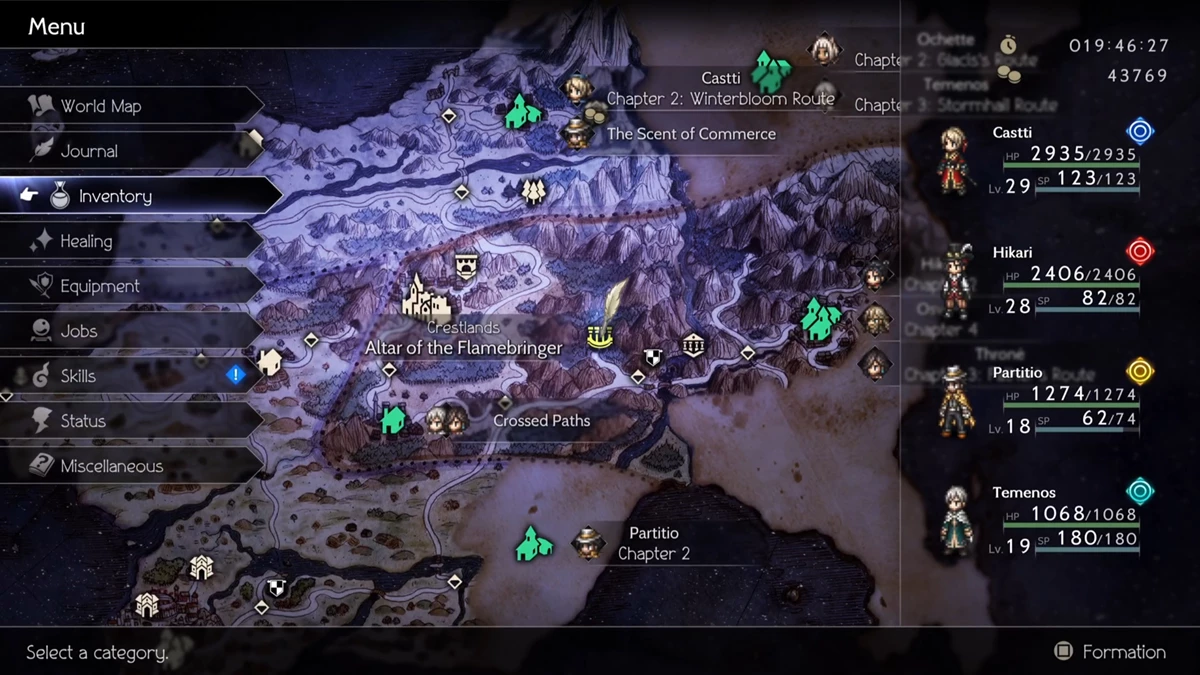

:format(webp):no_upscale()/cdn.vox-cdn.com/uploads/chorus_asset/file/24473342/OT2_202302_PUB05_SS082.jpg)
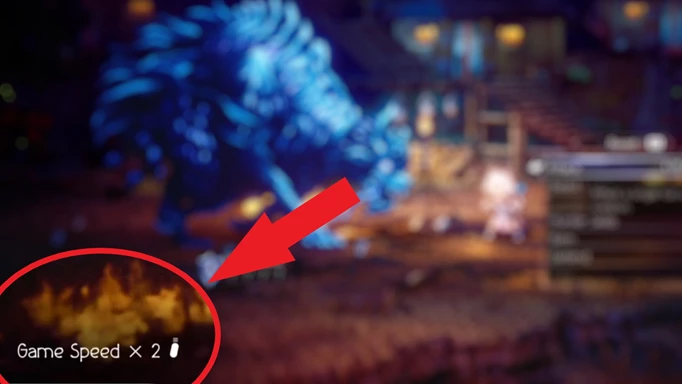
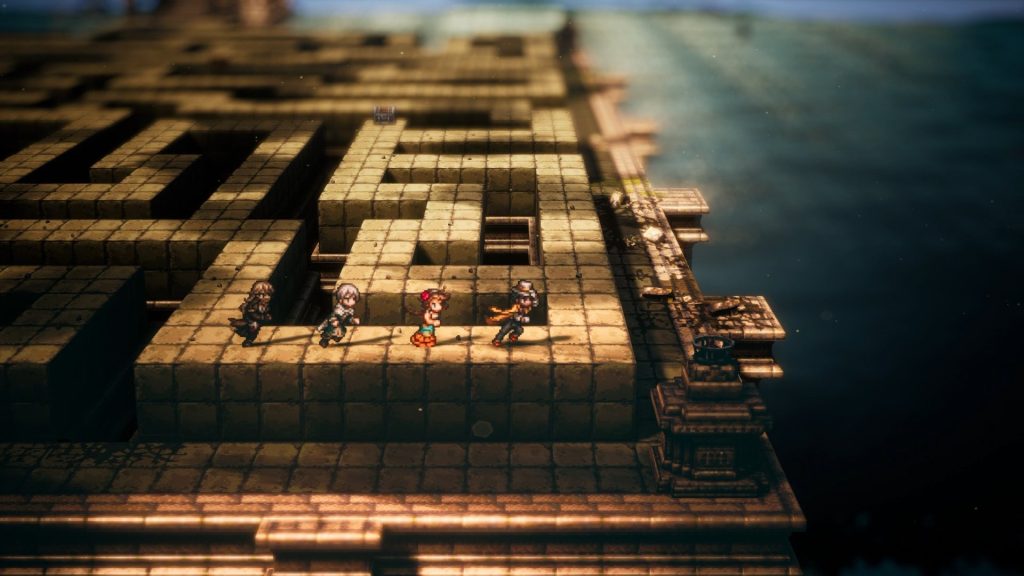










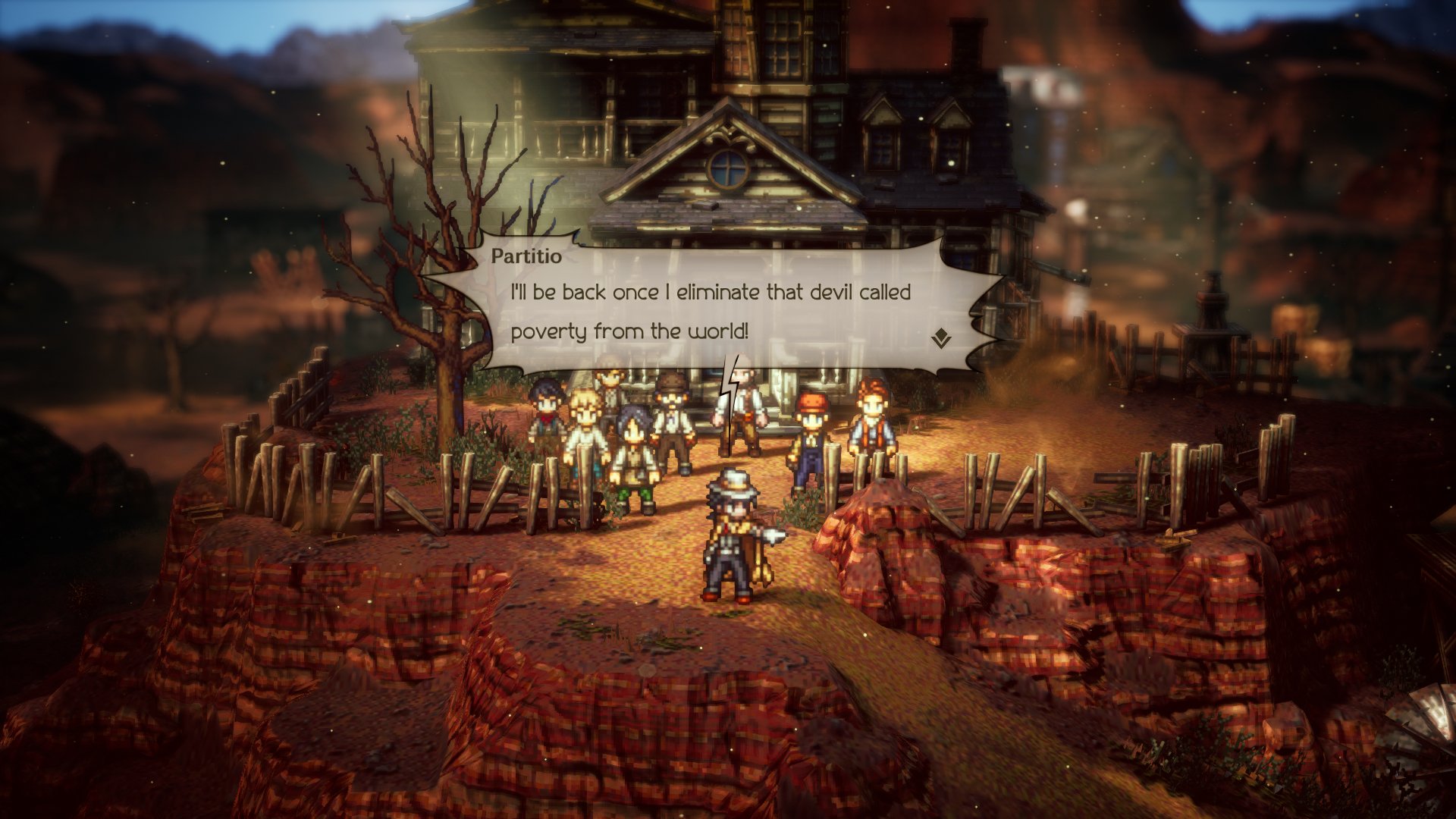
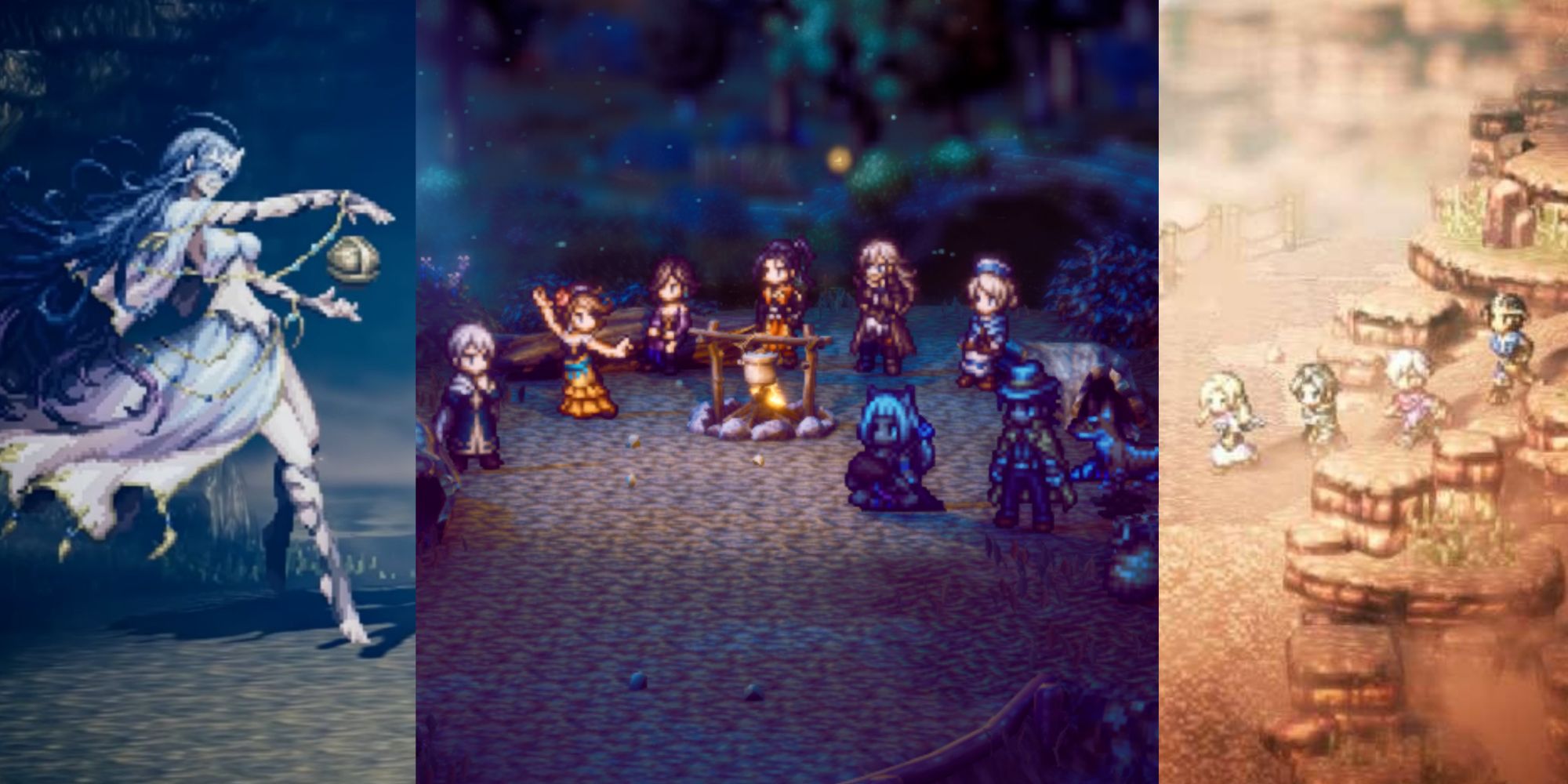


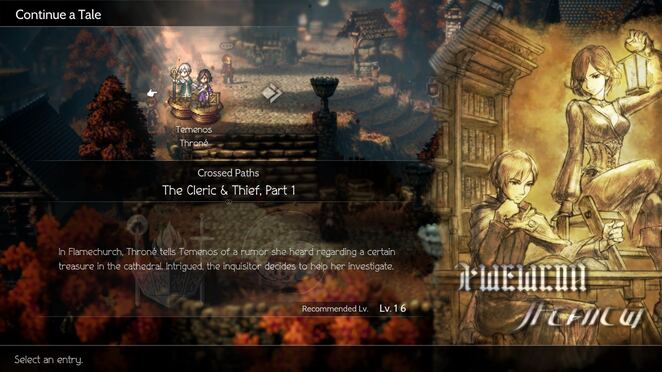


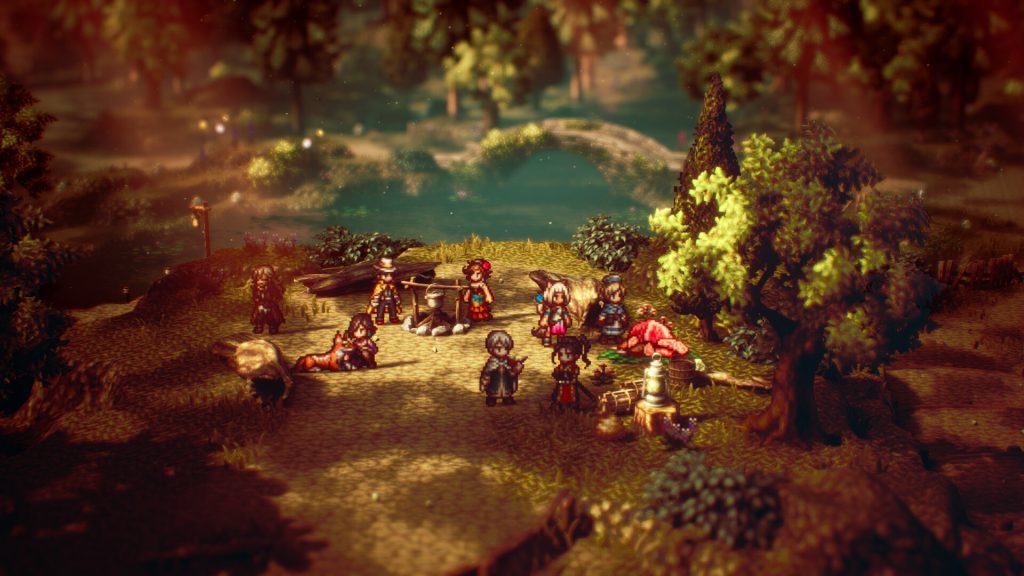


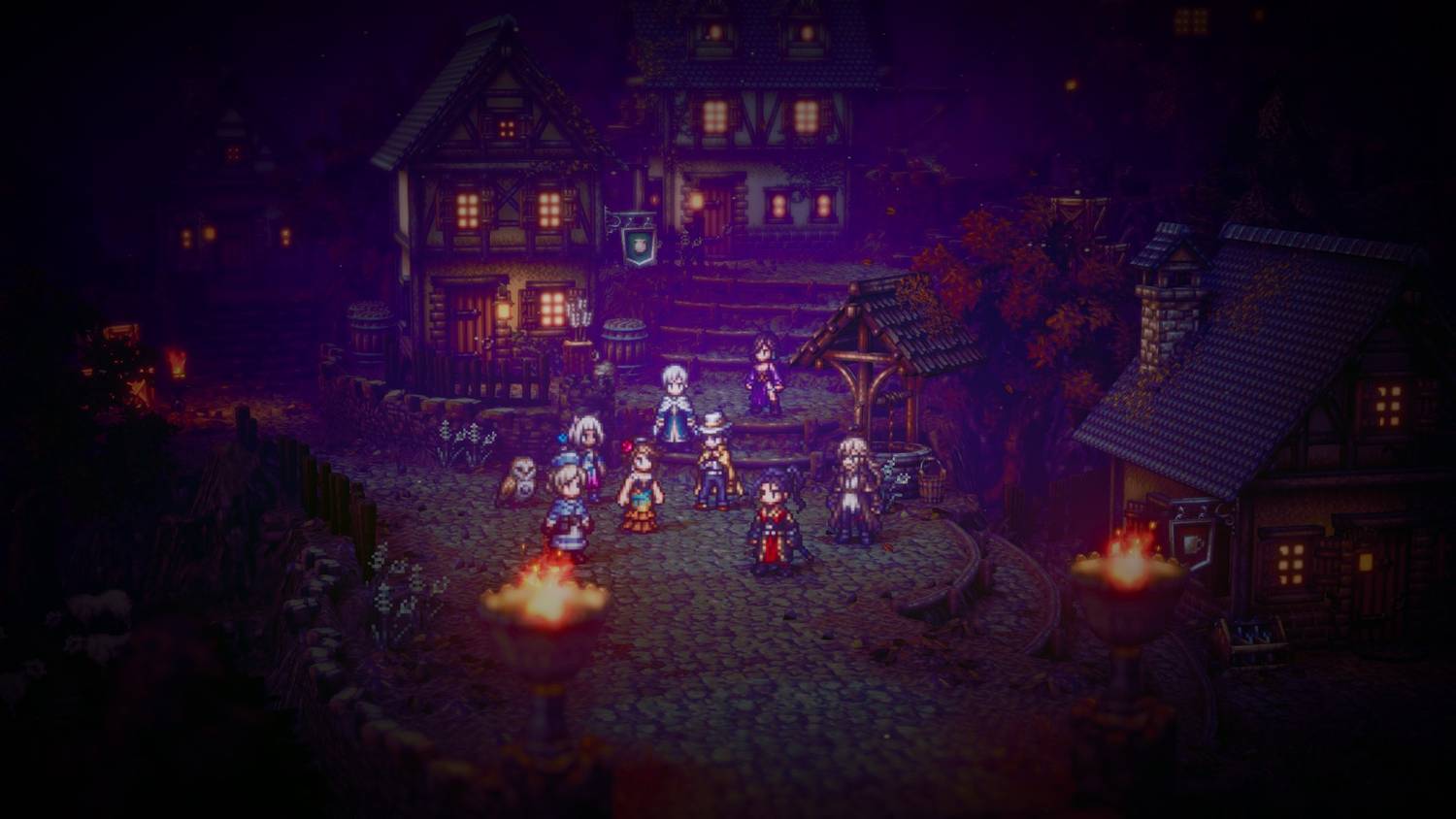
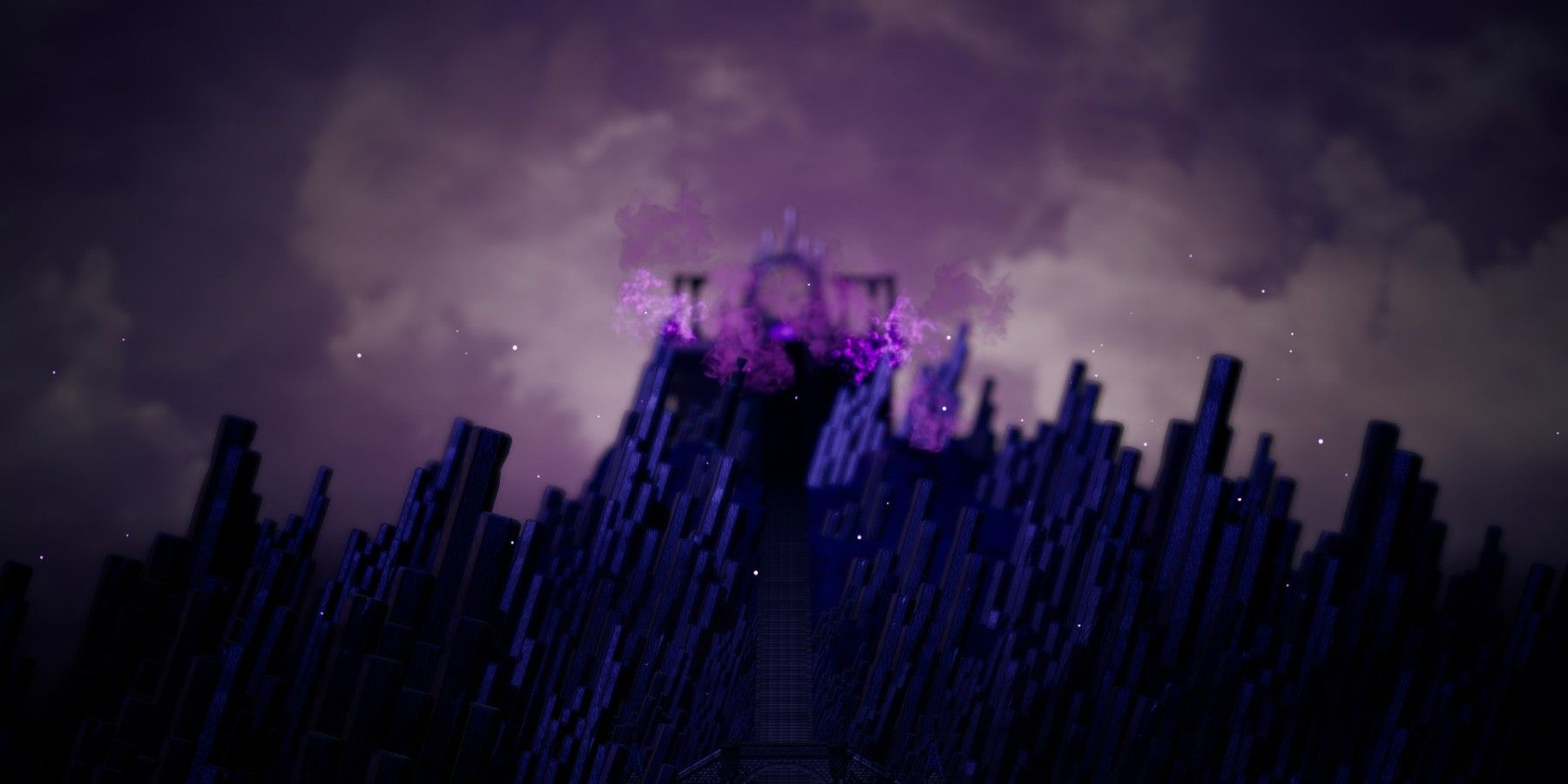


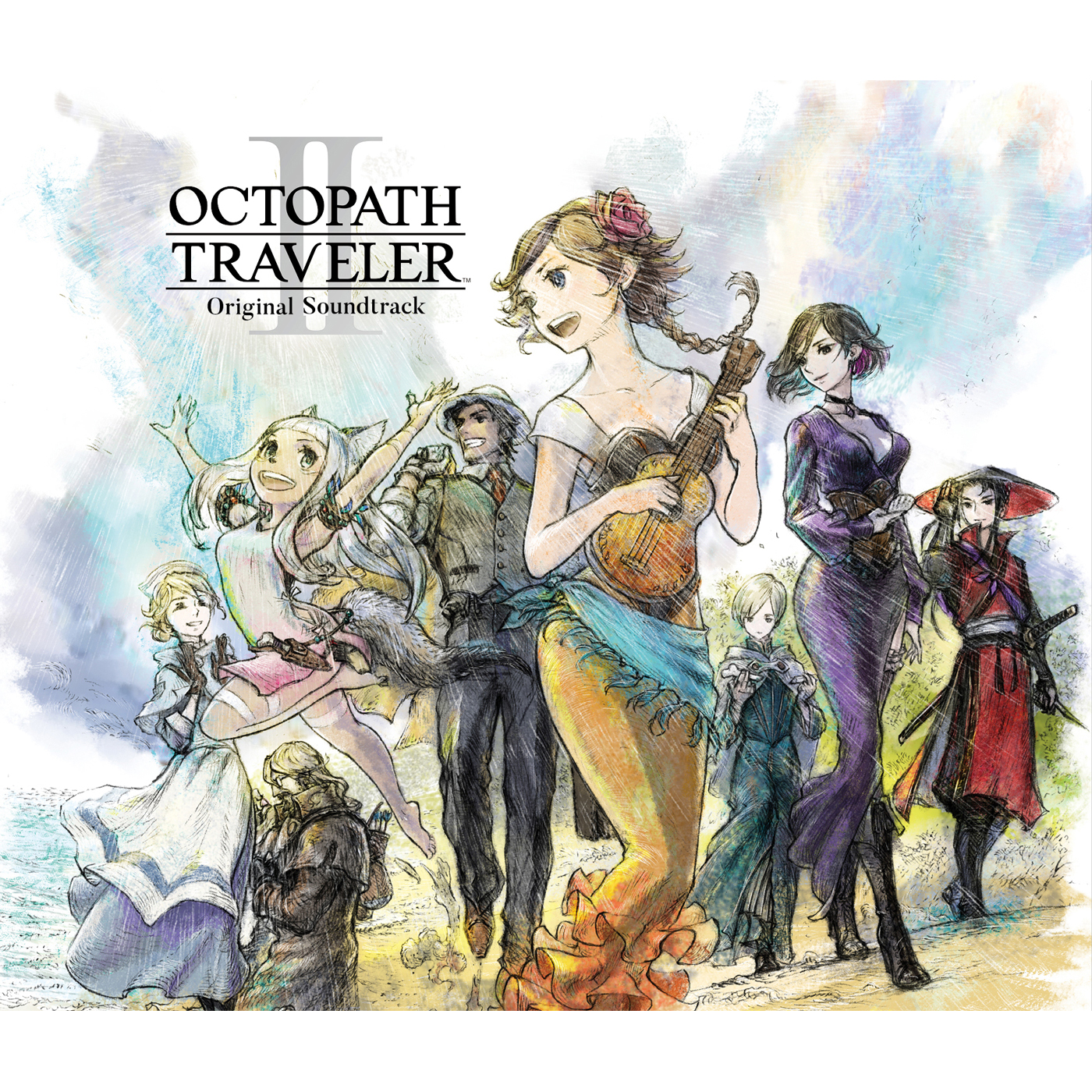
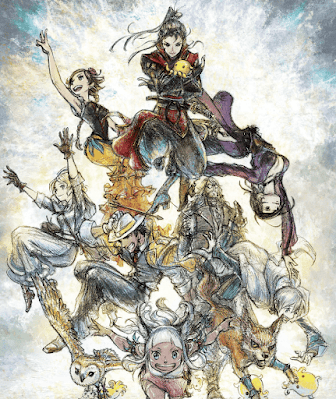
No comments:
Post a Comment